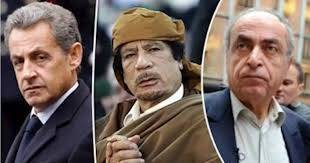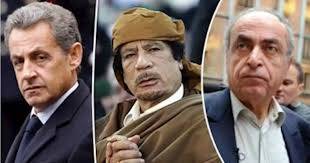The Lebanese National News Agency announced today that French judges interrogated Lebanese-French businessman Ziad Takieddine regarding the funding of former President Nicolas Sarkozy's election campaign.
The agency explained that the interrogation session took place in the Court of Cassation Hall at the Justice Palace in Beirut, attended by the public prosecutor, Judge Imad Qablani, under whose supervision the interrogation was conducted, and with the presence of Takieddine's lawyer, Sharif Hosseini. The Lebanese judiciary had confiscated Takieddine's passports, as he is considered a key witness in the case, and prevented him from leaving Lebanese territory, noting that Lebanon cannot extradite him to French authorities due to the absence of an extradition agreement between the two countries.
It is noteworthy that French judges traveled to Lebanon to pursue the case against Takieddine concerning the funding of Sarkozy's campaign with money from the regime of the late Libyan leader Muammar Gaddafi, in which Takieddine played a key role in the past in the relations between France and Gaddafi's regime.
Interestingly, Takieddine admitted to French investigators in 2016 that he had handed Sarkozy and his office manager an equivalent of €5 million between the end of 2006 and the beginning of 2007 to finance Sarkozy's presidential campaign. However, last month he retracted his accusations in an interview with the French weekly magazine "Paris Match" and the network "BFM TV."
Additionally, the Lebanese judiciary released businessman Ziad Takieddine (70 years old) days after his arrest under an international arrest warrant issued against him by Interpol following the identification of his residence and the confiscation of his passports, preventing him from leaving Lebanese territory.
It should be noted that Takieddine returned to Beirut after being convicted in Paris in June regarding the financial aspect of the Karachi case related to arms sales deals to Saudi Arabia and Pakistan, in which the judiciary concluded that he acted as an intermediary and received enormous commissions for "personal enrichment," and he was sentenced in absentia to five years in prison.




